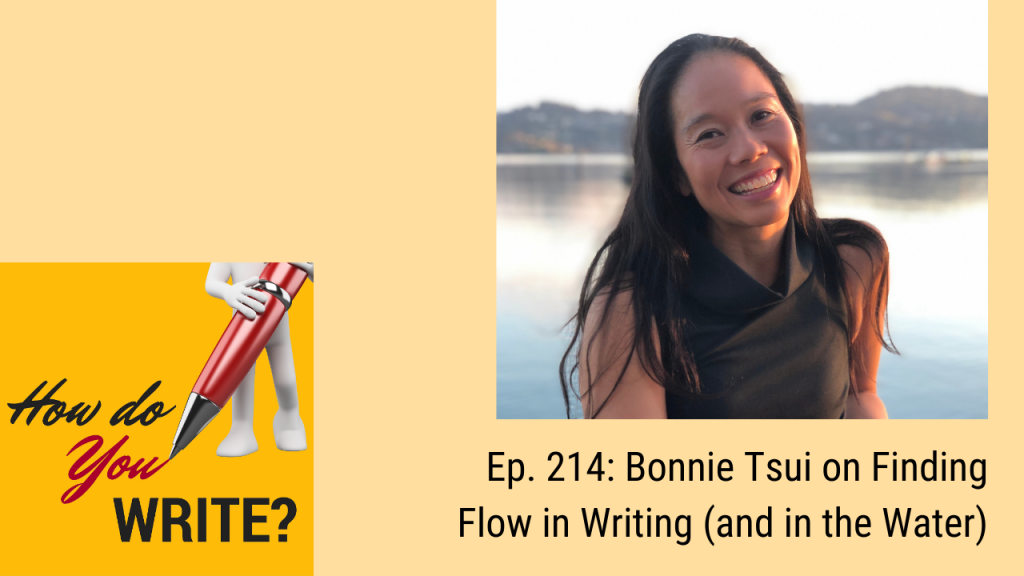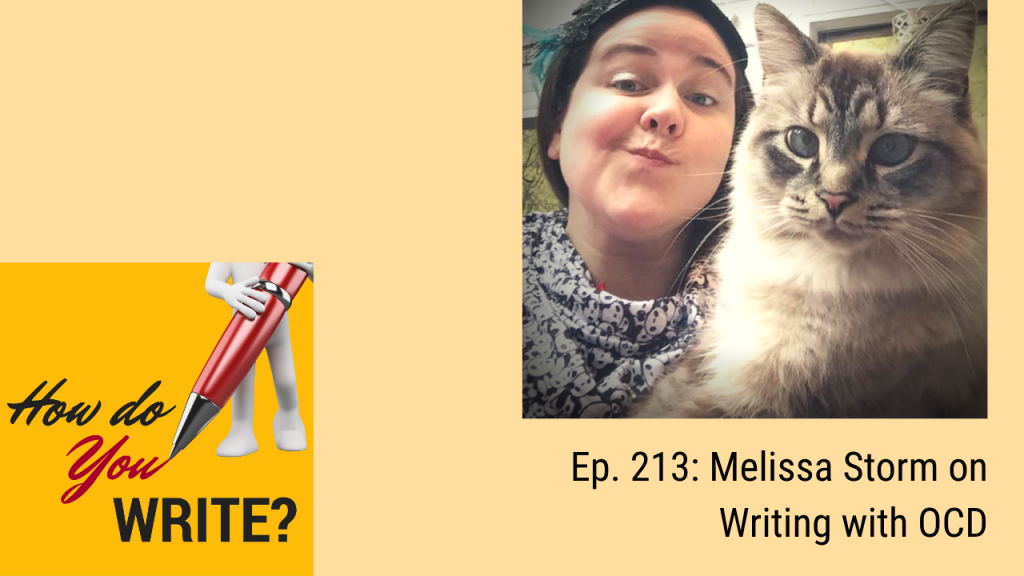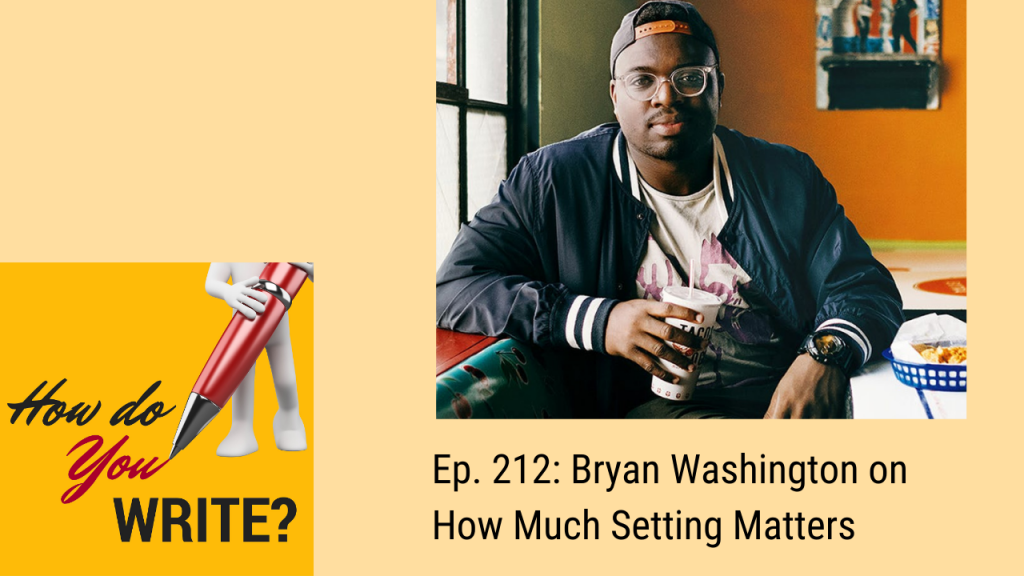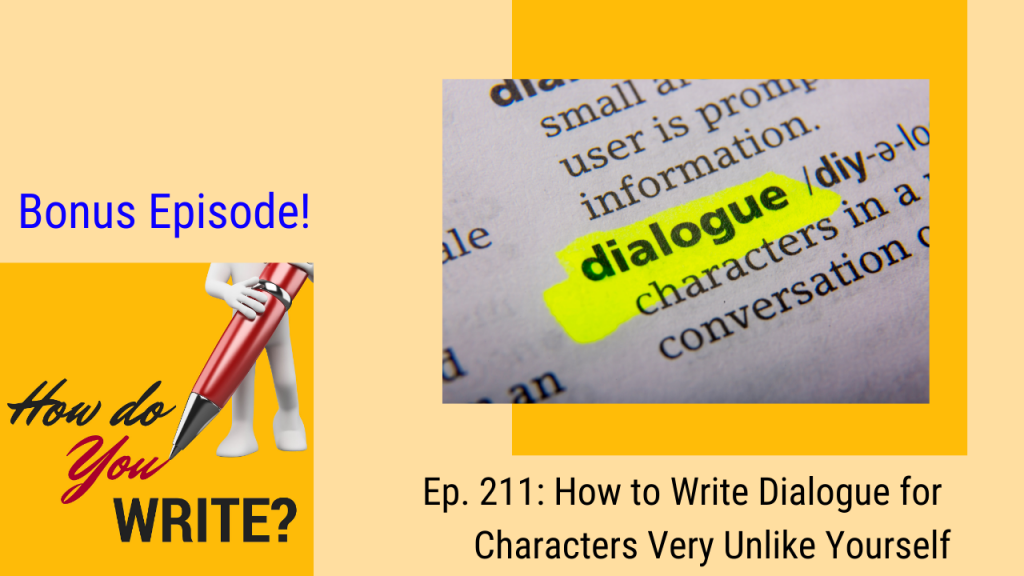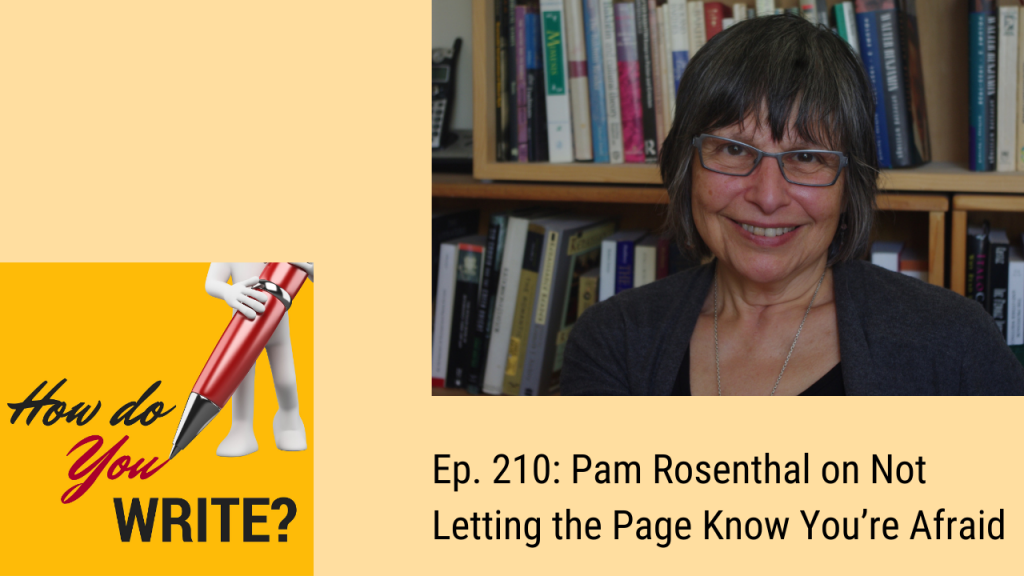Jeff Elkins is the author of twelve novels and leads the writing team for an innovative technology company that simulates difficult conversations for professionals to practice. In the Fall of 2020, Jeff began a new business, DialogueDoctor.com, that helps writers defeat mono-mouth by coaching them to build engaging characters and write realistic dialogue that will pull readers into their work and keep them reading over multiple books. Jeff lives outside of Baltimore in the United States with his wife and five kids.
How Do You Write Podcast: Explore the processes of working writers with bestselling author Rachael Herron. Want tips on how to write the book you long to finish? Here you’ll gain insight from other writers on how to get in the chair, tricks to stay in it, and inspiration to get your own words flowing.
Join Rachael’s Slack channel, Onward Writers!
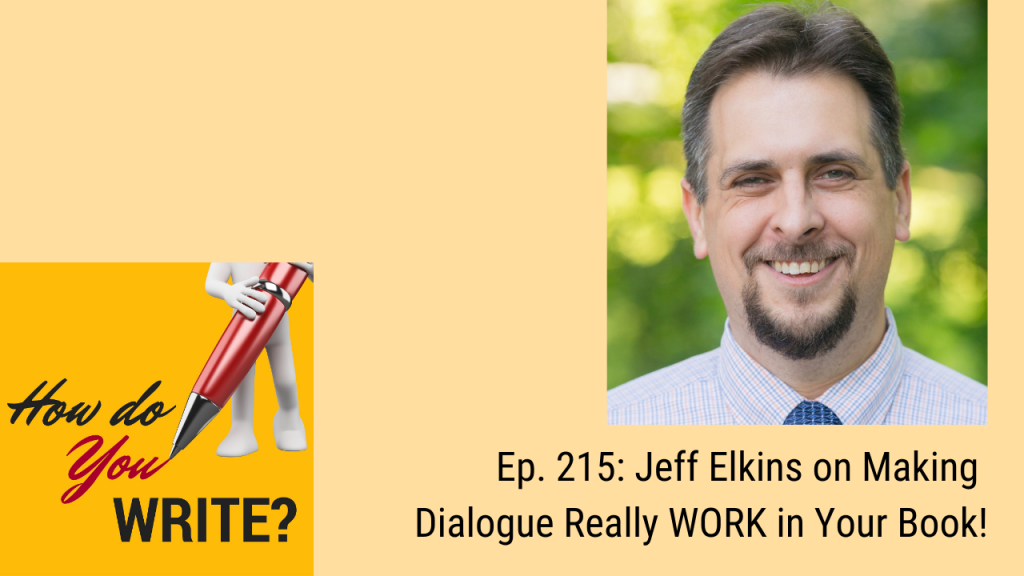
Transcript
Rachael Herron: [00:00:00] Welcome to “How do you Write?” I’m your host, Rachael Herron. On this podcast, I talk to authors about how they write, what their process is and how their lives fit together. I’ll keep each episode short so you can get back to writing.
[00:00:16] Well, Hello writers! Welcome to episode #215 of “How do you Write?” I’m Rachael Herron. So thrilled that you are here, extras super-duper thrilled because today we are talking to Jeff Elkins and Jeff is an old friend. He comes to me from the Writer’s Well, when J Thorn and I were doing that show and he’s just been around and part of my writing community for a long time. And he listened with horror as I was answering questions the other day on the mini podcast. And I was talking about how to make different voices of characters sound unique, which is something that I always add later in revision. He has a system of doing that and I am so excited to share this with you. It kind of blew my mind. It is truly unique, truly his, I know that you are going to get so much out of listening to it. I basically couldn’t wait to get off the phone with him in order to start implementing it into my work. And yeah, so look forward to that. That’s going to be Jeff coming up here in a minute. [00:01:24] If you ever watch me on the YouTube video that goes up only a few of you do that most of you listened to this in podcast form, but hopefully you will notice, even if you’re just on the podcast, that this sounds a little bit better. I have upgraded my recording studio here. And I actually have a mic that is much better. I was using a Samson meteor mic and I have moved up in the world. I’m actually using a pop filter and a shock mount and all of those things, which I have always known I should be using. And hopefully this will increase your listening audio pleasure. Let’s see what’s going, going on around here, writing wise, I had a migraine, so I had a couple of days off there. I am recovering have recovered, but I want to say that I did use some of my downtime while I had the migraine to think is when I’m on migraine, when I’m having a migraine I’m on a bunch of drugs and it does kind of free my mind to think about things and make connections that I possibly wouldn’t have before migraines are unique in that they are not just in the brain. They’re the whole body, the whole body is reacting to the migraine. Many people’s stomachs are involved, but for me also involved non drug dependent is the way I think I am able to kind of get back to this 30,000-foot view into a book. And think about it. So actually use some of the time, not a lot of the time because then my brain would drift away in pain but when I was able to, I was really thinking about the structure of this book that I am first drafting. I want to make that really clear. I am first drafting, so it is nothing but a hot mess. [00:03:08] However, it’s going to be a book. That’s really something I am reveling in knowing right now that no matter how messy it is, it’s going to be a book someday because I know how to revise, no matter how messy your book is, no matter how messy your writing is, even if you don’t know how to revise yet, you can learn. It is a learnable process and it’s just super exciting. And I’m still, now that I’m back at the page, feeling better, I’m still just throwing crappy words out and one of my students said just this morning in RachaelSaysWrite she said, there is a level of freedom that comes with that knowledge. That means you can just screw around on the page. Have a good time, leave sentences incompletely paragraphs hanging, jumped from chapter to chapter, add characters, kill the characters off in the next scene because they weren’t a good idea in the first place, knowing that you can remove them entirely or add them even further when you get to revision. That knowledge of that freedom is so fun and wonderful. So I hope that if you were playing with first drafting, you are remembering that you can fix anything, anything, anything, anything. So I am doing that. [00:04:27] Another thing that I’m doing, it will be almost back by the time this airs. So I feel comfortable saying this. I am tomorrow going away by myself. A friend of mine owns a beach house in one of those fancy, fancy beach areas. And she doesn’t look right at the water, but it’s a one-minute walk to the water, basically around this little corner and I’m going there for four days alone. 100% alone. My wife is going to be here taking care of the sick dog and the other dog and the two cats and I am going away. And yes, I have guilt about this. However, she knows she’s also allowed to go away whenever she wants and can do so. And I pointed out to her when these plans were made. I said, do you realize that when I’m gone, you are going to be alone too. And she just brightened because neither of us have been alone since March. You might understand this, it seems like there’s this, it’s not easy for anybody. The people who are alone are very, very, very alone. And I cannot imagine what that is like. And then the people who are together are very, very, very freaking together. And I need to be not together for a while. My wife and I have both always very much enjoyed and valued our alone time in really big ways. Like we are very comfortable saying, I need you to leave the house because I have not had alone time in, you know, four days. I need you to go somewhere, go to the movies, go to the store, go to the cafe. And we can’t do that anymore. We haven’t been able to do that since March, so I’m going to be alone. And I think I’m going to work. I am planning on getting a lot of words. Oftentimes when I go away kind of vacation like this or any other kind of time when I leave town, which I haven’t done since February. I don’t write. I failed to write. I, what I, what I really succeed in doing is lying around and reading and thinking and jotting notes and journaling and drinking tea and walking along the cliff and going down to the beach. [00:06:26] But this time I’m bringing my office smart and I’m just going to play at having fun. And I’m also going to give myself grace if nothing gets done, because that is more of my typical emo, but I, I’m just going to feel my way into it. Speaking of feeling my way into things, I will let you know that one of the motivations for getting this new recording equipment is that I have a new podcast just call me J Thorn. Now my new podcast is called You’re Already Ready and it is really tiny, short bites of pieces that I’m putting up. Basically I am reinstituting my blog. I am writing some things that I’m thinking, and I’m going to put them out in this little 5 to 7-minute podcast, 3 to 5 times a week. That is my goal. So go give that a try. I know it’s find-able on iTunes or whatever it’s called now. I, iTunes podcasts or wherever, Apple podcasts may be on Google play podcasts. It’s kind of hard to find it is available and it’s there but it’s hard to get to, Stitcher I know it’s available. I think it’s already available at Spotify. So you can check that out. You either search for my name or search for You’re Already Ready and let me know what you think. There’s about five episodes up right now, and it is not written, written. It’s not made for writers. It’s made for creative people. [Read more…] about Ep. 215: Jeff Elkins on Making Dialogue Really WORK in Your Book!